In Focus This Week
Election Training at Your Pace
By Michele Forney, Senior Election Expert
The Elections Group
You may know The Elections Group from the conference and training circuit. You may know The Elections Group from our monthly newsletter, busy webinar schedule or hundreds of resources available on our website.
You may not know The Elections Group as online training developers and course administrators of the Election Learning Lab. We have more than a dozen self-paced courses available to all election professionals. To build these courses, our team consults best practices and channels our broad election experience and deep expertise. Our goal with the Election Learning Lab is to 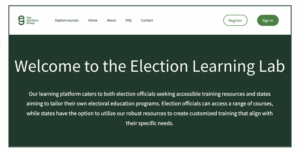 help current election professionals enhance their skills in support of efficient, safe and transparent elections.
help current election professionals enhance their skills in support of efficient, safe and transparent elections.
Did I mention that these courses are available for free? All you need to do is visit the Election Learning Lab and register with a username and password. Once you’re registered, you can explore the course descriptions, see which courses we recommend taking together and begin your online learning.
Because you’re busy and constantly pulled in many directions, each course is self-paced. You can take courses whenever it’s convenient, pause when you need to and resume where you left off at any time.
The courses are based on election practices nationwide. When courses reference processes or procedures used in particular states, they are typically presented as illustrative examples. Each course contains interactive activities and knowledge checks to help ensure information retention, but there are no time limits and quizzes are not graded.
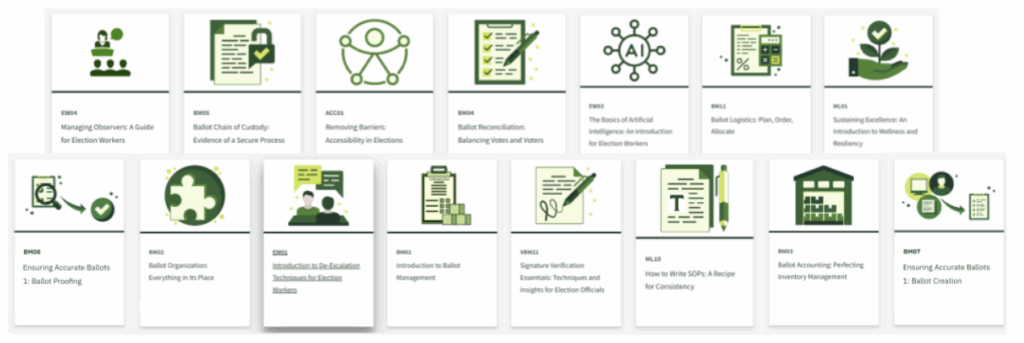
The Elections Group also produces tailored courses, mini-courses and assessments that individual states incorporate into their statewide election education programs.
Current Course Highlights
Our Ballot Management series includes courses on ballot accounting, chain of custody, reconciliation and organization. The newest courses in this series are:
- Ballot Logistics: Enhance your skills and efficiency when ordering ballots and allocating them to polling places or vote centers.
- Ballot Creation: Explore the components of ballot building and strategies for preparing accurate ballots. This is a Ballot Proofing companion course.
- Ballot Proofing: Ensure accurate ballots by following a systematic process. This is a Ballot Creation companion course.
The Election Worker series includes courses on de-escalation techniques, managing observers and the basics of using AI. One of our newest courses covers accessibility, from polling places to websites and voter education materials.
 More Online Courses!
More Online Courses!
The Elections Group is continuously creating new courses to support election professionals. In the coming weeks and months, we will launch courses on:
- Election Testing: Examining certification testing by the EAC and states, user acceptance testing, and logic and accuracy testing with resources you can use to educate voters on election security.
- Media Relations 101: Learn the basics of working with the media in your community, proactively informing the public with accurate information and responding to crises.
- Security Series: Become security savvy, with courses on phishing, doxxing, bomb threats, contaminated mail and incident response planning, developed in partnership with the Center for Tech and Civic Life.
If your office would benefit from online training in another election topic area or your state is interested in tailored online training, please email us at support@electionsgroup.com. Our courses are inspired by you and your colleagues, and we welcome your ideas and suggestions.
electionline Daily News Email
 What’s the best part of waking up? electionline Daily News in your inbox of course so be sure to sign up for your daily dose.
What’s the best part of waking up? electionline Daily News in your inbox of course so be sure to sign up for your daily dose.
Each morning you’ll receive the top headlines of the day, plus a listing of states featured in that day’s news round up.
To sign up, simply visit our site and provide us with your email and you’ll begin receiving the news in your inbox each morning.
We Google so you don’t have to!
Election News This Week
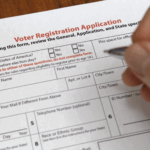 Data Sharing: Late last week, Texas Secretary of State Jane Nelson announced that Texas has entered into memorandums of understanding (MOU) with nine states – Alabama, Arkansas, Kansas, Kentucky, Louisiana, Ohio, South Carolina, Virginia and West Virginia – to share voter registration data, strengthening efforts to prevent duplicate registrations. The agreements establish a secure and cooperative process for comparing voter registration records, providing a critical tool to detect and prevent potential voter fraud. “These agreements are a significant step in our ongoing commitment to maintain accurate voter registration lists and upholding the integrity of our elections,” said Secretary Nelson. “By working together, we are demonstrating how states can responsibly share information while protecting voter data.” The MOUs outline how the two states will securely exchange voter registration data while adhering to strict confidentiality and cybersecurity protocols. The agreements also ensure that any instances of duplicate registrations or potential voter fraud identified through this process are shared with appropriate authorities for further investigation. These MOUs serve as a model for future partnerships. Texas plans to establish similar agreements with additional states. These agreements will further enhance election security by allowing states to work together to identify cross-state duplicate registrations and prevent voting in multiple jurisdictions. A spokesperson for the Kansas Secretary of State’s office, Whitney Tempel, said Texas can’t share other states’ data with the federal government. A provision in the agreement prohibits states from sharing data with any third party. “This is a common sense step toward cleaner rolls and better election administration,” Kansas Secretary of State Scott Schwab (R) said. “We look forward to establishing agreements with other states in the future.” Currently, 25 states and the District of Columbia are members of ERIC.
Data Sharing: Late last week, Texas Secretary of State Jane Nelson announced that Texas has entered into memorandums of understanding (MOU) with nine states – Alabama, Arkansas, Kansas, Kentucky, Louisiana, Ohio, South Carolina, Virginia and West Virginia – to share voter registration data, strengthening efforts to prevent duplicate registrations. The agreements establish a secure and cooperative process for comparing voter registration records, providing a critical tool to detect and prevent potential voter fraud. “These agreements are a significant step in our ongoing commitment to maintain accurate voter registration lists and upholding the integrity of our elections,” said Secretary Nelson. “By working together, we are demonstrating how states can responsibly share information while protecting voter data.” The MOUs outline how the two states will securely exchange voter registration data while adhering to strict confidentiality and cybersecurity protocols. The agreements also ensure that any instances of duplicate registrations or potential voter fraud identified through this process are shared with appropriate authorities for further investigation. These MOUs serve as a model for future partnerships. Texas plans to establish similar agreements with additional states. These agreements will further enhance election security by allowing states to work together to identify cross-state duplicate registrations and prevent voting in multiple jurisdictions. A spokesperson for the Kansas Secretary of State’s office, Whitney Tempel, said Texas can’t share other states’ data with the federal government. A provision in the agreement prohibits states from sharing data with any third party. “This is a common sense step toward cleaner rolls and better election administration,” Kansas Secretary of State Scott Schwab (R) said. “We look forward to establishing agreements with other states in the future.” Currently, 25 states and the District of Columbia are members of ERIC.
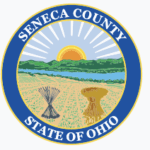 Election Worker Requirements: In August, Seneca County, Ohio Board of Elections rejected a ballot measure to discontinue the use of electronic voting machines. Some members of the group looking to remove the machines because of perceived security risks then tried to become managers at polling locations on election day. The county BOE said no and Elections Director Lori Elchert defended the policy at the time as a compromise, stating that leadership positions carry greater responsibility. Following the August vote, the Secretary of State’s office later issued guidance stating that disqualifying individuals based on affiliation or ideology was not permitted under state law. This week, the Board approved a motion 3-0 to allow voting machine skeptics to serve as polling location managers. The approved motion read: “Pursuant to the guidance from the Ohio Secretary of State’s Office to rescind the motion adopted on Aug. 26 which stated that individuals publicly or actively working against voting machines are ineligible to serve as voting location managers.” Duane Clary, a member of the Coalition of Concerned Voters of Ohio, a group advocating for election transparency and questioning the use of electronic voting machines, welcomed the board’s reversal and criticized the initial decision. “We’re not conspiracy theorists. We follow the Constitution, and the Constitution cannot be a conspiracy,” Clary said
Election Worker Requirements: In August, Seneca County, Ohio Board of Elections rejected a ballot measure to discontinue the use of electronic voting machines. Some members of the group looking to remove the machines because of perceived security risks then tried to become managers at polling locations on election day. The county BOE said no and Elections Director Lori Elchert defended the policy at the time as a compromise, stating that leadership positions carry greater responsibility. Following the August vote, the Secretary of State’s office later issued guidance stating that disqualifying individuals based on affiliation or ideology was not permitted under state law. This week, the Board approved a motion 3-0 to allow voting machine skeptics to serve as polling location managers. The approved motion read: “Pursuant to the guidance from the Ohio Secretary of State’s Office to rescind the motion adopted on Aug. 26 which stated that individuals publicly or actively working against voting machines are ineligible to serve as voting location managers.” Duane Clary, a member of the Coalition of Concerned Voters of Ohio, a group advocating for election transparency and questioning the use of electronic voting machines, welcomed the board’s reversal and criticized the initial decision. “We’re not conspiracy theorists. We follow the Constitution, and the Constitution cannot be a conspiracy,” Clary said
 Social Media Update: This week, YouTube announced that it would offer creators a way to rejoin the streaming platform if they were banned for violating COVID-19 and election misinformation policies that are no longer in effect. In a letter submitted in response to subpoenas from the House Judiciary Committee, attorneys for YouTube’s parent company Alphabet said the decision to bring back banned accounts reflected the company’s commitment to free speech. It said the company values conservative voices on its platform and recognizes their reach and important role in civic discourse. “No matter the political atmosphere, YouTube will continue to enable free expression on its platform, particularly as it relates to issues subject to political debate,” the letter read. According to The Associated Press, the move is the latest in a cascade of content moderation rollbacks from tech companies, who cracked down on false information during the pandemic and after the 2020 election but have since faced pressure from President Donald Trump and other conservatives who argue they unlawfully stifled right-wing voices in the process. YouTube in 2023 phased out its policy to remove content that falsely claims the 2020 election, or other past U.S. presidential elections, were marred by “widespread fraud, errors or glitches.” Asked for more information about the reinstatement process, a spokesperson for YouTube did not immediately respond to The Associated Press’ request for comment.
Social Media Update: This week, YouTube announced that it would offer creators a way to rejoin the streaming platform if they were banned for violating COVID-19 and election misinformation policies that are no longer in effect. In a letter submitted in response to subpoenas from the House Judiciary Committee, attorneys for YouTube’s parent company Alphabet said the decision to bring back banned accounts reflected the company’s commitment to free speech. It said the company values conservative voices on its platform and recognizes their reach and important role in civic discourse. “No matter the political atmosphere, YouTube will continue to enable free expression on its platform, particularly as it relates to issues subject to political debate,” the letter read. According to The Associated Press, the move is the latest in a cascade of content moderation rollbacks from tech companies, who cracked down on false information during the pandemic and after the 2020 election but have since faced pressure from President Donald Trump and other conservatives who argue they unlawfully stifled right-wing voices in the process. YouTube in 2023 phased out its policy to remove content that falsely claims the 2020 election, or other past U.S. presidential elections, were marred by “widespread fraud, errors or glitches.” Asked for more information about the reinstatement process, a spokesperson for YouTube did not immediately respond to The Associated Press’ request for comment.
Personnel News: Joni Guidry has been appointed the new Acadia Parish, Louisiana registrar of voters. Marie Smalls has retired as the director of the Beaufort County Board of Voter Registration and Elections. Former state judge, lawyer, pastor, and educator Penny Brown Reynolds has announced her candidacy for Georgia secretary of state. Armando Salud-Ambriz, former deputy of elections for Yolo County, was appointed Nevada County’s new clerk-recorder/registrar of voters. State Rep. Heather Baxter announced plans to run for South Dakota secretary of state. Sangamon County, Illinois Clerk Don Gray announced that he will seek re-election. South Carolina Election Commission Deputy Director Paige Salonich has been terminated. Adrian Consonery Jr. has announced his candidacy for Georgia secretary of state. Michael Mandy is the new Antioch, California city clerk. Macomb County Clerk Anthony Forlini has announced his candidacy for Michigan secretary of state. Congratulations to Kennebunkport Town Clerk Tracey O’Roak has been named the 2025 Town Clerk of the Year by the Maine Town and Cities Clerks’ Association. Reporter Jen Fifield has left Votebeat and is joining ProPublica to cover elections.
New Research & Resources
 Elections Funding: The Center for Election Innovation & Research (CEIR) released the latest update to its “Restrictions on Private Funding of Elections” report last month. This resource provides an overview of restrictions that limit agencies, officials, or government entities from receiving or spending private funds on the conduct of elections. Since the 2020 election, at least 29 states have enacted such restrictions, which are each summarized in this report. CEIR released the first iteration of this resource in August 2023 and regularly updates it to reflect new restrictions and changes to existing restrictions.
Elections Funding: The Center for Election Innovation & Research (CEIR) released the latest update to its “Restrictions on Private Funding of Elections” report last month. This resource provides an overview of restrictions that limit agencies, officials, or government entities from receiving or spending private funds on the conduct of elections. Since the 2020 election, at least 29 states have enacted such restrictions, which are each summarized in this report. CEIR released the first iteration of this resource in August 2023 and regularly updates it to reflect new restrictions and changes to existing restrictions.
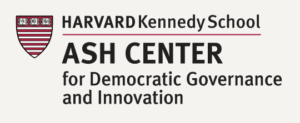 Stadium Polling Places: Sports facilities are uniquely positioned to provide an enjoyable voting experience and strengthen civic engagement. A new report by Tova Wang, Director of Research Projects in Democratic Practice at the Ash Center for Democratic Governance and Innovation at Harvard’s Kennedy School, explores the impact of stadium voting in 2024 at Allegiant Stadium, drawing widespread, bipartisan support from voters and election officials and strengthening the relationship between the Las Vegas Raiders and the surrounding community. In the 2024 general election, Allegiant Stadium drew over 4,200 voters to cast their ballots on Election Day, demonstrating the unique position of stadium facilities to provide an enjoyable voting experience and strengthen civic engagement. Voters at Allegiant Stadium were younger and more likely to be first-time voters compared to other polling locations in Clark County, with the experience drawing widespread, bipartisan support from voters, election officials, and the Las Vegas Raiders. This report explores the benefits of stadium voting by harnessing the power of sports to shape the fan-voter experience.
Stadium Polling Places: Sports facilities are uniquely positioned to provide an enjoyable voting experience and strengthen civic engagement. A new report by Tova Wang, Director of Research Projects in Democratic Practice at the Ash Center for Democratic Governance and Innovation at Harvard’s Kennedy School, explores the impact of stadium voting in 2024 at Allegiant Stadium, drawing widespread, bipartisan support from voters and election officials and strengthening the relationship between the Las Vegas Raiders and the surrounding community. In the 2024 general election, Allegiant Stadium drew over 4,200 voters to cast their ballots on Election Day, demonstrating the unique position of stadium facilities to provide an enjoyable voting experience and strengthen civic engagement. Voters at Allegiant Stadium were younger and more likely to be first-time voters compared to other polling locations in Clark County, with the experience drawing widespread, bipartisan support from voters, election officials, and the Las Vegas Raiders. This report explores the benefits of stadium voting by harnessing the power of sports to shape the fan-voter experience.
Ballot Measures, Legislation & Rulemaking
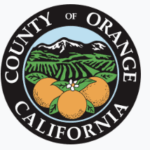 Orange County, California: This week, the Orange County Board of Supervisors directed staff to cross-reference voter rolls with pet registration data in the county in order to make sure there are no four-legged voters with names like Fido, Fifi, Spot, Sparky or Lucky casting ballots in the next special election in November. “How do we check that dogs and cats or whatever are not on our (voter) rolls?” Supervisor Dan Wagner asked during a meeting. The measure, introduced by Wagner and Supervisor Janet Nguyen, came after a Costa Mesa woman was charged early this month with five felony counts after allegedly registering her dog to vote. According to The Los Angeles Times, supervisors directed the Orange County Registrar of Voters to review thousands of voter records to ensure that no other pets have been registered to vote in the county and this week, directed the agency to expand that review to thousands of more pet registrations to ensure no other four-legged pets are casting votes. The registrar recently checked pet registrations in all unincorporated communities in the county against voter records, and was directed Tuesday to try to expand that review to pet registrations in all incorporated cities within the county. Bob Page, registrar of voters for the county, said the agency this month has cross-referenced nearly 8,000 pet registration records in unincorporated areas in the county at the direction of the board, and has found no indication of pets getting registered to vote in that review. The Registrar of Voters is also requesting the same data from cities that contract with the county for animals services to get access to that data, Page said, and will review those pet records against the county voter rolls.
Orange County, California: This week, the Orange County Board of Supervisors directed staff to cross-reference voter rolls with pet registration data in the county in order to make sure there are no four-legged voters with names like Fido, Fifi, Spot, Sparky or Lucky casting ballots in the next special election in November. “How do we check that dogs and cats or whatever are not on our (voter) rolls?” Supervisor Dan Wagner asked during a meeting. The measure, introduced by Wagner and Supervisor Janet Nguyen, came after a Costa Mesa woman was charged early this month with five felony counts after allegedly registering her dog to vote. According to The Los Angeles Times, supervisors directed the Orange County Registrar of Voters to review thousands of voter records to ensure that no other pets have been registered to vote in the county and this week, directed the agency to expand that review to thousands of more pet registrations to ensure no other four-legged pets are casting votes. The registrar recently checked pet registrations in all unincorporated communities in the county against voter records, and was directed Tuesday to try to expand that review to pet registrations in all incorporated cities within the county. Bob Page, registrar of voters for the county, said the agency this month has cross-referenced nearly 8,000 pet registration records in unincorporated areas in the county at the direction of the board, and has found no indication of pets getting registered to vote in that review. The Registrar of Voters is also requesting the same data from cities that contract with the county for animals services to get access to that data, Page said, and will review those pet records against the county voter rolls.
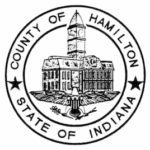 Hamilton County, Indiana: The Hamilton County Election Board failed to get a unanimous vote it needed to move the county to a countywide Vote Center model. On September 18, Republican appointee Ray Adler cast the deciding vote against the measure, keeping the county in a traditional precinct-based voting system. County Clerk Kathy Kreag Williams and Democratic appointee Greg Purvis voted in favor of the measure. According to WRTV, the decision comes after the Election Board in Allen County approved a similar proposal earlier in the week. “I just think we should let Allen County go through it and see what problems they have,” Adler, the Republican appointee who voted down the measure, said in the release. “We’re changing voting for hundreds of thousands of people and I want to make sure it’s not an experiment.” According to the release sent from Hamilton County, the Vote Center model requires approval from all three governing bodies: County Commissioners, County Council and the Election Board. In Hamilton County, both the commissioners and the seven members of the council voted unanimously in favor of the measure. Public sentiment in a countywide survey suggested that 60% of the respondents were in favor of the measure, while 10% were indifferent, the release said. 68 of Indiana’s 92 counties have already adopted the Vote Center Model.
Hamilton County, Indiana: The Hamilton County Election Board failed to get a unanimous vote it needed to move the county to a countywide Vote Center model. On September 18, Republican appointee Ray Adler cast the deciding vote against the measure, keeping the county in a traditional precinct-based voting system. County Clerk Kathy Kreag Williams and Democratic appointee Greg Purvis voted in favor of the measure. According to WRTV, the decision comes after the Election Board in Allen County approved a similar proposal earlier in the week. “I just think we should let Allen County go through it and see what problems they have,” Adler, the Republican appointee who voted down the measure, said in the release. “We’re changing voting for hundreds of thousands of people and I want to make sure it’s not an experiment.” According to the release sent from Hamilton County, the Vote Center model requires approval from all three governing bodies: County Commissioners, County Council and the Election Board. In Hamilton County, both the commissioners and the seven members of the council voted unanimously in favor of the measure. Public sentiment in a countywide survey suggested that 60% of the respondents were in favor of the measure, while 10% were indifferent, the release said. 68 of Indiana’s 92 counties have already adopted the Vote Center Model.
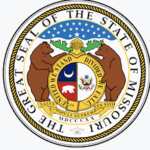 Missouri Ballot Measure: State Republicans recently advanced a constitutional amendment that would effectively kill the initiative process. The proposal, which will now go before voters for a statewide referendum in 2026, would drastically raise the threshold for a citizen-led initiative to pass. While all measures in the state currently require a majority vote statewide, the GOP proposal would require citizen-led initiatives to also win majorities in each of the state’s eight congressional districts. Constitutional amendments placed on the ballot by legislators would be exempt from the new hurdle, and would still only require a statewide majority to pass. Under the proposed new rule for citizen-led ballot measures, all five popular initiatives that Missouri voters have approved since 2020 would have failed instead, a Bolts analysis found. Mallory Rusch, executive director of Empower Missouri says the new rules, which would be unique in the country, would spell the end of citizen petitions. “A lot of activists say that, if we want to do something via initiative, this might be our last year,” she said.
Missouri Ballot Measure: State Republicans recently advanced a constitutional amendment that would effectively kill the initiative process. The proposal, which will now go before voters for a statewide referendum in 2026, would drastically raise the threshold for a citizen-led initiative to pass. While all measures in the state currently require a majority vote statewide, the GOP proposal would require citizen-led initiatives to also win majorities in each of the state’s eight congressional districts. Constitutional amendments placed on the ballot by legislators would be exempt from the new hurdle, and would still only require a statewide majority to pass. Under the proposed new rule for citizen-led ballot measures, all five popular initiatives that Missouri voters have approved since 2020 would have failed instead, a Bolts analysis found. Mallory Rusch, executive director of Empower Missouri says the new rules, which would be unique in the country, would spell the end of citizen petitions. “A lot of activists say that, if we want to do something via initiative, this might be our last year,” she said.
 Wisconsin: Wisconsin’s controversial practice of randomly removing ballots to resolve discrepancies between the number of ballots and the number of voters would be prohibited under new draft legislation that requires meticulous audits in every county. Wisconsin’s law allowing drawdowns is almost as old as the state, and it appears to be used most often in recounts. Other states have had similar laws, but most have repealed them. Drawdowns occur when records show more ballots cast than the number of voters who cast ballots. These discrepancies usually stem from minor recordkeeping errors or process mistakes. Multiple Wisconsin clerks have told Votebeat that they loathe the practice, and national election experts have been flabbergasted that it exists. A legislative study committee in 2005 questioned the practice’s constitutionality without resolving the issue. The bill also requires risk-limiting audits, a kind of post-election review designed to give statistical confidence that votes are accurately tallied. A pilot program would begin in 2026, with full implementation in 2027.
Wisconsin: Wisconsin’s controversial practice of randomly removing ballots to resolve discrepancies between the number of ballots and the number of voters would be prohibited under new draft legislation that requires meticulous audits in every county. Wisconsin’s law allowing drawdowns is almost as old as the state, and it appears to be used most often in recounts. Other states have had similar laws, but most have repealed them. Drawdowns occur when records show more ballots cast than the number of voters who cast ballots. These discrepancies usually stem from minor recordkeeping errors or process mistakes. Multiple Wisconsin clerks have told Votebeat that they loathe the practice, and national election experts have been flabbergasted that it exists. A legislative study committee in 2005 questioned the practice’s constitutionality without resolving the issue. The bill also requires risk-limiting audits, a kind of post-election review designed to give statistical confidence that votes are accurately tallied. A pilot program would begin in 2026, with full implementation in 2027.
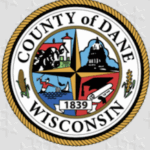 Dane County, Wisconsin: The Dane County Board of Supervisors has passed a resolution allowing any REAL ID to be used for voter identification, regardless of the state where it was issued. Supervisors who proposed the resolution say it will remove unnecessary barriers to the ballot for eligible voters. Supervisors Colin Barushok, Jay Brower, and Henry Fries were the resolution’s lead authors.
Dane County, Wisconsin: The Dane County Board of Supervisors has passed a resolution allowing any REAL ID to be used for voter identification, regardless of the state where it was issued. Supervisors who proposed the resolution say it will remove unnecessary barriers to the ballot for eligible voters. Supervisors Colin Barushok, Jay Brower, and Henry Fries were the resolution’s lead authors.
Legal Updates
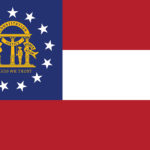 Georgia: Nicholas Wimbish, 26, of Milledgeville, was sentenced Sept. 18 to 20 months in prison followed by one year of supervised release. He was also fined $2,000 by U.S. District Judge Marc Treadwell. Wimbish pleaded guilty earlier this year to one count of conveying false information and making hoaxes. According to court records, Wimbish was working at the Jones County Elections Office in Gray on Oct. 16, 2024, when he argued with a voter. Hours later, he researched the voter online and drafted a letter posing as that person. The letter threatened to bomb the polling site, target Wimbish and other poll workers, and contained graphic threats of violence. Wimbish mailed the letter to the county elections superintendent the next day. It arrived on Oct. 22, 2024. The letter included details intended to make it appear the voter was the author, accusing Wimbish of trying to influence ballots and calling him a “woke liberal fraudster.” It also warned poll workers to “look over their shoulder” and ended with a handwritten note that read, “PS boom toy in early vote place, cigar burning, be safe.” Wimbish later admitted he knew “boom toy” referred to an explosive device. “Ensuring the security of our polling places is essential. Americans must be able to express their political choices at the ballot box without fear of violence or harm,” U.S. Attorney William R. “Will” Keyes said in a statement. “These threats undermine the core values of our nation, and we will vigorously pursue justice in such matters.”
Georgia: Nicholas Wimbish, 26, of Milledgeville, was sentenced Sept. 18 to 20 months in prison followed by one year of supervised release. He was also fined $2,000 by U.S. District Judge Marc Treadwell. Wimbish pleaded guilty earlier this year to one count of conveying false information and making hoaxes. According to court records, Wimbish was working at the Jones County Elections Office in Gray on Oct. 16, 2024, when he argued with a voter. Hours later, he researched the voter online and drafted a letter posing as that person. The letter threatened to bomb the polling site, target Wimbish and other poll workers, and contained graphic threats of violence. Wimbish mailed the letter to the county elections superintendent the next day. It arrived on Oct. 22, 2024. The letter included details intended to make it appear the voter was the author, accusing Wimbish of trying to influence ballots and calling him a “woke liberal fraudster.” It also warned poll workers to “look over their shoulder” and ended with a handwritten note that read, “PS boom toy in early vote place, cigar burning, be safe.” Wimbish later admitted he knew “boom toy” referred to an explosive device. “Ensuring the security of our polling places is essential. Americans must be able to express their political choices at the ballot box without fear of violence or harm,” U.S. Attorney William R. “Will” Keyes said in a statement. “These threats undermine the core values of our nation, and we will vigorously pursue justice in such matters.”
 Louisiana: The U.S. Department of Justice filed an amicus brief this week in Louisiana’s ongoing redistricting case, arguing that the U.S. Supreme Court should significantly weaken the power of the Voting Rights Act (VRA) to block racial gerrymanders. Though not unexpected, the brief carries major symbolic weight. For decades, the Justice Department has been at the forefront of efforts to use Section 2 of the VRA to protect minority voting rights, most frequently in the redistricting process. Under President Donald Trump, it now argues for a radically narrowed interpretation of Section 2, which could make it all but useless in stopping racially motivated gerrymanders. In the case challenging Louisiana’s congressional map, the DOJ submitted an amicus brief calling the state’s creation of a second majority-Black congressional district “unconstitutional,” and describing current protections as little more than “electoral race-based affirmative action.” Solicitor General D. John Sauer asserted that intentionally drawing a second Black-majority district violates the Constitution. But the DOJ went further, arguing that the Voting Rights Act itself cannot justify race-conscious redistricting. “Section 2 does not supply a compelling interest to draw such districts because the statute would be unconstitutional if it required such race-based districting,” the filing declares.
Louisiana: The U.S. Department of Justice filed an amicus brief this week in Louisiana’s ongoing redistricting case, arguing that the U.S. Supreme Court should significantly weaken the power of the Voting Rights Act (VRA) to block racial gerrymanders. Though not unexpected, the brief carries major symbolic weight. For decades, the Justice Department has been at the forefront of efforts to use Section 2 of the VRA to protect minority voting rights, most frequently in the redistricting process. Under President Donald Trump, it now argues for a radically narrowed interpretation of Section 2, which could make it all but useless in stopping racially motivated gerrymanders. In the case challenging Louisiana’s congressional map, the DOJ submitted an amicus brief calling the state’s creation of a second majority-Black congressional district “unconstitutional,” and describing current protections as little more than “electoral race-based affirmative action.” Solicitor General D. John Sauer asserted that intentionally drawing a second Black-majority district violates the Constitution. But the DOJ went further, arguing that the Voting Rights Act itself cannot justify race-conscious redistricting. “Section 2 does not supply a compelling interest to draw such districts because the statute would be unconstitutional if it required such race-based districting,” the filing declares.
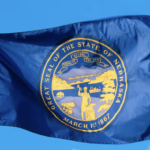 Nebraska: Common Cause Nebraska has sued to block Nebraska’s secretary of state from sharing voter registration data with the U.S. Department of Justice. The lawsuit seeks an injunction to stop Secretary of State Bob Evnen from providing data to the DOJ. Federal officials have asked states for names, dates of birth, driver’s license numbers and the last four digits of voters’ Social Security numbers, saying they want the information to ensure accurate voter registration rolls. Common Cause asked a Lancaster County District Court to find that the DOJ request violates Nebraska law protecting data privacy. It aims to prohibit the Secretary of State from providing the voter data to the DOJ or to limit the types of data shared. The Justice Department sent a letter to Nebraska’s secretary of state Sept. 8 with a Sept. 22 deadline to provide the data. The Secretary of State’s Office told the Examiner it hasn’t provided the data to the DOJ because of the lawsuit.
Nebraska: Common Cause Nebraska has sued to block Nebraska’s secretary of state from sharing voter registration data with the U.S. Department of Justice. The lawsuit seeks an injunction to stop Secretary of State Bob Evnen from providing data to the DOJ. Federal officials have asked states for names, dates of birth, driver’s license numbers and the last four digits of voters’ Social Security numbers, saying they want the information to ensure accurate voter registration rolls. Common Cause asked a Lancaster County District Court to find that the DOJ request violates Nebraska law protecting data privacy. It aims to prohibit the Secretary of State from providing the voter data to the DOJ or to limit the types of data shared. The Justice Department sent a letter to Nebraska’s secretary of state Sept. 8 with a Sept. 22 deadline to provide the data. The Secretary of State’s Office told the Examiner it hasn’t provided the data to the DOJ because of the lawsuit.
 Wisconsin: Some of the 193 Madison voters whose ballots mistakenly didn’t get counted in the 2024 presidential election filed a lawsuit last week seeking class-action status, arguing that the city unconstitutionally deprived them of their right to vote. According to Votebeat, the lawsuit stands out because it seeks monetary damages for alleged violations of voting rights — a remedy that has become increasingly rare. According to election experts, that type of claim is unlikely to succeed. “These voters deserved better,” Scott Thompson, an attorney for the plaintiffs with the firm Law Forward, said in a statement. ”In Wisconsin, we value the right to vote, and there will be consequences when that right is denied.” The named plaintiffs are some of the 193 voters whose ballots didn’t get counted in the 2024 election. They’re suing the city of Madison, the city’s clerk office, former Clerk Maribeth Witzel-Behl, and current Deputy Clerk Jim Verbick, seeking monetary damages for the city’s failure to count the voters’ ballots. The complaint doesn’t specify the amount, but in a claim filed in March, the group representing the plaintiffs requested $34 million, or $175,000 for each disenfranchised voter. Madison’s interim City Clerk and City Attorney Mike Haas declined to comment on the lawsuit. This lawsuit aims to emphasize the importance of properly counting all ballots, and set a monetary penalty for denying a person their vote.
Wisconsin: Some of the 193 Madison voters whose ballots mistakenly didn’t get counted in the 2024 presidential election filed a lawsuit last week seeking class-action status, arguing that the city unconstitutionally deprived them of their right to vote. According to Votebeat, the lawsuit stands out because it seeks monetary damages for alleged violations of voting rights — a remedy that has become increasingly rare. According to election experts, that type of claim is unlikely to succeed. “These voters deserved better,” Scott Thompson, an attorney for the plaintiffs with the firm Law Forward, said in a statement. ”In Wisconsin, we value the right to vote, and there will be consequences when that right is denied.” The named plaintiffs are some of the 193 voters whose ballots didn’t get counted in the 2024 election. They’re suing the city of Madison, the city’s clerk office, former Clerk Maribeth Witzel-Behl, and current Deputy Clerk Jim Verbick, seeking monetary damages for the city’s failure to count the voters’ ballots. The complaint doesn’t specify the amount, but in a claim filed in March, the group representing the plaintiffs requested $34 million, or $175,000 for each disenfranchised voter. Madison’s interim City Clerk and City Attorney Mike Haas declined to comment on the lawsuit. This lawsuit aims to emphasize the importance of properly counting all ballots, and set a monetary penalty for denying a person their vote.
Opinions This Week
National Opinions: Trust in elections | List maintenance
Alaska: Ranked choice voting
Arizona: Indigenous voters
California: Ventura County
Colorado: Denver elections | Voter data
Connecticut: Ballot reform
Indiana: Vote centers
Kansas: Citizenship ceremonies
Kentucky: Citizenship ceremonies
Maine: Ranked choice voting
North Carolina: Election reform
Ohio: Ranked choice voting
Pennsylvania: Ballot cure
South Carolina: South Carolina Election Commission
Wisconsin: Election legislation
Upcoming Events
Lessons from the 2024 Elections for 2026 and Beyond: A Conversation with Nate Persily: The Safeguarding Democracy Project at UCLA Law promotes research, collaboration, and advocacy aimed at ensuring continued free and fair elections in the United States. This webinar will be a conversation with Nate Persily, Stanford Law School & Rick Hasen, UCLA School of Law. When: October 7, 3:15pm Eastern. Where: Online.
Civic Impact Summit: the Path to 2026: Join the Center for Election Science’s inaugural, national summit for civic impact. This virtual, one-hour event will focus on the impacts of approval voting within our current political environment. If you can’t join in person, click the link below to see the fiscal impact of your support for this critical work. When: October 8, 3pm Eastern. Where: Online.
Leah Litman on the Supreme Court: University of Michigan Law School Professor Leah Litman will discuss her provocative new book Lawless: How the Supreme Court Runs on Conservative Grievance, Fringe Theories, and Bad Vibes, which argues that the Court has abandoned legal reasoning in favor of political grievances dressed up in judicial language. With her signature blend of serious legal analysis and irreverent wit, Litman will discuss how major Supreme Court decisions are made. Litman will be in dialogue with UCLA Law Professor Rick Hasen. When: October 14, 7:30pm Pacific. Where: The Hammer Museum, Los Angeles.
Protecting the Election: AI and Governance Conference at WashU: Join us for this two-day in-person research and practitioner conference at WashU on October 16-17, 2025, to discuss research regarding AI and governance and how this applies to U.S. elections. Research topics include how chatbots can be used to engage with voters, how social media influences voters, what the electorate knew (or did not know) about the candidates and issues during recent elections, misinformation in elections, rhetoric about election integrity, and AI strategies for the administration of elections. We will also hear from practitioners during the conferences about their experiences with and needs for AI in recent elections and their intentions for future use of AI in elections. When: Oct. 16-17. Where: St. Louis.
Redistricting and Re-Redistricting Controversies and the 2026 Elections: The Safeguarding Democracy Project at UCLA Law promotes research, collaboration, and advocacy aimed at ensuring continued free and fair elections in the United States. This webinar will be moderated by Rick Hasen and feature: Guy-Uriel Charles, Harvard Law Moon Duchin, The Data and Democracy Lab Data and Democracy Research Initiative, U of Chicago Michael Li, NYU Law Brennan Center for Justice Nicholas Stephanopoulos, Harvard Law. When: October 16, 3:15pm Eastern. Where: Online.
Democracy at 250: From Gerrymandering to Genuine Representation: As the United States approaches its 250th anniversary, questions of representation and democratic legitimacy are front and center. From partisan gerrymandering and primary systems that drive polarization to calls for proportional representation and ranked-choice voting, Americans are increasingly debating how electoral structures shape the health of our republic. This event—part of R Street’s 250th Anniversary Series—brings together R Street’s Governance Policy Director, Matthew Germer; political analyst Chris Stirewalt; and legal scholar Walter Olson to explore the landscape of electoral reform and what it means for American democracy at 250. Together, they will examine: How current electoral practices affect representation, accountability, and public trust. The range of reforms under discussion, from proportional representation to ranked-choice voting and beyond. The legal, political, and cultural barriers to reform. How the Founders’ principles—equality, popular sovereignty, and civic virtue—might guide us in strengthening democratic institutions today. A reception will follow to continue the conversation. When: October 21. Where: Washington, DC.
Symposium at Auburn University: The 5th Biennial Auburn Symposium in Election Administration will be held October 26-28, 2025 at the Hotel at Auburn University. The Symposium launched in 2015 to foster conversation about critical issues that impact American democratic institutions, support the development of common understanding and language across diverse professional communities engaged in the practice of election administration, and promote dialogue between those who conduct elections and those who study the way elections operate. The series is held in odd-numbered years on the Auburn University campus. This year, the theme is Innovative Election Administration Funding Solutions, exploring new, practical, and sustainable solutions to address the critical issue of adequate funding of election administration across local, state, and/or federal levels in the United States. Questions: elect1@auburn.edu. When: October 26-28. Where: Auburn, Alabama.
NDACo Annual Conference [North Dakota]: When: October 26-28.
Media, Social Media, and the Changing Election Information Environment in 2026: The Safeguarding Democracy Project at UCLA Law promotes research, collaboration, and advocacy aimed at ensuring continued free and fair elections in the United States. This webinar will be moderated by Rick Hasen and feature: Danielle Citron, UVA Law, Brendan Nyhan, Dartmouth, and Amy Wilentz, UCI Emerita. When: October 30, 3:15pm Eastern. Where: Online.
2025 National Student Vote Summit– The Students Learn Students Vote Coalition is proud to host the 10th annual National Student Vote Summit. At the summit, we’ll unite nonprofit leaders, campus staff, administrators, faculty members, philanthropic partners, election officials, and students from across the country to continue a decade-strong tradition of collective action and impact. Building on the momentum and insights from our 2024 Summit—where more than 300 nonpartisan student vote leaders took on challenges like local election turnout, combating misinformation, and reducing post-election disengagement — this milestone gathering aims to amplify our collective power and chart a course for an even more impactful 2026. We’ll kick off the Summit with the ALL IN Campus Democracy Challenge Awards Ceremony, celebrating college student voting achievements nationwide and setting the stage for a memorable experience. Awards will be presented to college and university campuses, student leaders and individual champions for their nonpartisan contributions to increasing student voter engagement in the 2024 Election. Thanks to our incredible host partners at the University of Maryland, College Park, we’ll gather once again at UMD’s Stamp Student Union. There, in collaboration with TerpsVote, we’ll create an inspiring space for learning, connection, and celebration. Every participant will leave equipped with the tools, relationships, and momentum to make 2026 a historic year for nonpartisan student voter engagement. When: November 12-15. Where: College Park, Maryland.
57th Annual Tennessee County Officials Association (COAT) Conference: When: November 16-19. Where: Pigeon Forge.
The Supreme Court, the Voting Rights Act, and the 2026 Elections: The Safeguarding Democracy Project at UCLA Law promotes research, collaboration, and advocacy aimed at ensuring continued free and fair elections in the United States. This webinar will be moderated by Rick Hasen and feature: Ellen Katz, University of Michigan, Lenny Powell, Native American Rights Fund (NARF), and Deuel Ross, Legal Defense Fund. When: November 18, 3:15pm Eastern. Where: Online.
2025 New England Association of City and Town Clerks Conference: When: November 19-21. Where: Bangor, Maine.
JEOLC 2026: The Election Center will host the 2026 JEOLC conference at the Ritz Carlton in Pentagon City, Virginia from January 6-10. One CERA renewal class will be offered. Please visit the Election Center website for more information and to register when it’s available.
iGO Midwinter Conference: The International Association of Government Officials will hold its Midwinter Conference in Albuquerque, New Mexico from January 19-23, 2026. Please visit the iGO website for more information and to register.
2026 NASS Winter Conference: The National Association of Secretaries of State will hold its 2026 Winter Conference in Washington, DC from January 28-31. Please refer to the NASS website for more information about the event and to register.
2026 NASED Winter Conference: Twice a year, National Association of State Election Directors members gather to discuss the latest developments in election administration. Members of the public are welcome to attend at the non-member registration rate. Please refer to the NASED website for information about the 2026 Winter Conference. When: Feb. 1-3, 2026. Where: Washington, DC.
2026 NACo Legislative Conference: The National Association of Counties will hold its 2026 Legislative Conference in Washington, DC from February 21-24, 2026. Please visit the NACo website for more information about the event and to register.
Election Center February Workshop: Focusing on interaction and sharing of practices selected by members to receive People’s Choice Awards, the February Workshops formalize those critical conversations that happen at conferences during meals, in the hallways, & the hotel lobby. The agenda augments the award-winning member presentations with applicable research and resources.Two CERA core courses and one renewal will be held following the workshop. When: February 25-27. Where: Jacksonville, Florida.
Job Postings This Week
electionlineWeekly publishes election administration job postings each week as a free service to our readers. To have your job listed in the newsletter, please send a copy of the job description, including a web link to mmoretti@electionline.org. Job postings must be received by 5pm on Wednesday in order to appear in the Thursday newsletter. Listings will run for three weeks or till the deadline listed in the posting.
Administrative Specialist, King County, Washington – The Department of Elections is searching for energetic and resourceful professionals who like to “get stuff done”. The Administrative Specialist II positions in the Voter Services Department combines an exciting, fast-paced environment with the opportunity to cultivate talents and apply a variety of skills. The ideal candidate will have a desire to help ensure the democratic process through public service. They will thrive in an innovative environment and will not hesitate to roll up both sleeves, work hard, have fun, and get the job done. Job Duties: Provide excellent customer service to internal and external customers in person, via telephone, and via e-mail by processing voter registrations, communicating election program information and explaining election procedures, guidelines and regulations. Provide backup support for translation and/or interpreting and proof election-related documents and web materials from English to Chinese (traditional text). This includes but is not limited to voter registration information, letters, and other correspondence, notice of elections, ballot titles, voters’ pamphlet information, candidate statements, ballot measures, etc. to limited English speaking (LES) voters. Perform production-level computer work which includes accurate data entry, retrieving and editing records. Organize and coordinate work activities and assist with providing training and one-on-one instruction to diverse staff. Set up records and file documents in both electronic and paper formats. Review documents for proper format, accuracy, completion, eligibility, and other legal guidelines. Audit work group data entry activities to ensure performance quality and efficiency of work. Utilize spreadsheets, word documents and reports to track and document performance data. Research and resolve questions from staff, citizens and stakeholders. Document and improve work processes, procedures and instructions. Salary: $27.03 – $34.40 Hourly. Application: For the complete job listing and to apply, click here.
Assistant Registrar of Voters, Santa Clara County, California– Under general direction, the Assistant Registrar of Voters supports the planning, organization, and oversight of the County Registrar of Voters Department. This executive leadership position reports directly to the Registrar of Voters and plays a key role in administering and managing departmental operations. The department is responsible for voter registration, the conduct of elections, and related electoral services. The Assistant Registrar of Voters helps ensure that all activities are carried out efficiently, accurately, and in compliance with applicable laws and regulations. This position may assume the responsibility of the Department in the absence of the Registrar of Voters. Salary: $194,184.52 – $249,180.63. Application: For the complete job listing and to apply, click here.
Data Scientist Manager, CIRCLE– This is a limited term position for two years, with the possibility of extension contingent on grant funding. This position is not eligible for severance pay. CIRCLE, the Center for Information & Research on Civic Learning and Engagement at Tisch College within Tufts University, is a non-partisan, independent research organization focused on youth civic engagement in the United States. CIRCLE conducts extensive research that examines how young people in the United States develop knowledge, skills, and dispositions for effective democratic engagement and leverages that research to improve opportunities for all young people to acquire and use the skills and knowledge they need to meaningfully participate in civic life. CIRCLE is especially concerned with understanding, addressing, and ultimately eliminating the systemic barriers that keep some young people marginalized from and underrepresented in civic life. CIRCLE covers a broad range of disciplines and fields, from K-12 civic education, youth voting, youth organizing, youth and civic media, to community characteristics that promote civic development. The Data Scientist/Manager serves as CIRCLE’s technical anchor for all data-intensive research initiatives, bridging advanced analytics with strategic leadership in youth civic engagement research. This role owns the full data lifecycle – from architecting robust systems for all record datasets to translating complex findings into policy-relevant insights. The position requires equal mastery of technical execution (R, SQL, BigQuery) and collaborative leadership, guiding both internal teams and external partners through data challenges in a fast-paced research environment. Salary Range: $79,600 to $119,500. Application: For the complete job listing and to apply, click here.
Deputy County Administrator / Auditor-Treasurer, Otter Tail County, Minnesota – Otter Tail County is seeking a full-time Deputy County Administrator / Auditor-Treasurer. This position will be part of the County Leadership Team overseeing the Finance, Property, and License Management Team and Countywide initiatives such as the Long-Range Strategic Plan. This position is responsible for overseeing and administering the duties and functions of an Auditor-Treasurer including financial operations and policy development, property recordings, assessor, elections, property tax administration, state audits, tax increment financing, property forfeitures, and ensuring compliance with state and federal regulations. This position would fulfill the appointed duties of an Auditor-Treasurer. Under the direction of the County Administrator, the Deputy County Administrator assists in managing and administering the affairs of the county and carrying out the policies of the County Board. This position is responsible to provide oversight in the planning, development, management, coordination, delivery, and evaluation of multiple complex functions of one of four service teams in the county organization. Lead interdepartmental and interagency work teams to improve county service alignment and performance. Priorities include service alignment, leadership and accountability to county-wide board goals. The Deputy County Administrator acts on behalf of the County Administrator in that person’s absence. Salary: DOQ. Deadline: September 30. Application: For the complete job listing and to apply, click here.
Deputy Director, Surrey County, North Carolina– The County of Surry is accepting applications for the full-time position of Deputy Director of Elections. This position assists the Elections Director with managing the daily operations of the Board of Elections office and with the preparation and conduct of elections in accordance with federal, state, and local laws. The Deputy Director also serves as Acting Director in the Director’s absence. Key responsibilities include planning, preparing, and conducting all elections; supporting candidate filing, ballot preparation, absentee and early voting, and election-day logistics; overseeing the testing, maintenance, and certification of voting equipment; assisting with reconciliation and post-election reporting; maintaining the voter registration database and conducting list maintenance; supervising and training precinct officials; coordinating polling places and election supplies; preparing training materials and forms; and ensuring compliance with election laws and security protocols. The position also requires excellent customer service to voters, candidates, political parties, and the public, along with representing the department at trainings and community events. Other duties may be assigned as needed. Salary: $41,508 – $69,124. Application For the complete job listing and to apply, click here.
Deputy of Elections, Yolo County, California– Under administrative direction of the Assessor/Clerk-Recorder/Registrar of Voters, the Deputy of Elections assists the Assessor/Clerk-Recorder/Registrar of Voters in the planning, administration, direction, and coordination of the Elections Branch; develops and implements program policy, procedures, and strategic initiatives; oversees major program areas and ensures compliance with applicable laws and regulations; assists the Assessor/Clerk-Recorder/Registrar of Voters with the administration and direction of the department; and may serve as an Assessor/Clerk-Recorder/Registrar of Voters designee or in their absence. An ideal candidate is a highly adaptable and meticulous elections professional with proven leadership experience navigating the rapid pace and strict deadlines of election administration. They possess strong technical skills and a proactive approach to problem-solving, ensuring the accurate and timely execution of all election-related duties. In addition, the following knowledge and abilities are associated with this position. Salary: $111,321.60 – $135,304.00 Annually. Application: For the complete job listing and to apply, click here.
Development Specialist–CEIR is seeking a dedicated and experienced Development Specialist to join our team. This role will lead our fundraising and development initiatives, building robust systems to sustain and expand our vital work in election administration and research. The ideal candidate brings demonstrated success in nonprofit fundraising, expertise in modern development tools and strategies, and a commitment to nonpartisan democratic institutions. Key Responsibilities: Develop and implement comprehensive, forward-looking fundraising strategies aligned with CEIR’s mission and growth objectives, in partnership with the Executive Director and senior staff. Establish and optimize development infrastructure including: Donor engagement and stewardship, Gift processing and acknowledgement, Performance metrics and reporting framework, Database management and constituent records. Manage the full grant lifecycle, from prospect research through proposal development and reporting. Leverage Bloomerang CRM to maintain detailed constituent records and analyze giving patterns to inform strategy. Create compelling fundraising materials and impact reports for diverse audiences. Lead individual giving campaigns and special appeals in collaboration with CEIR staff and outside contractors. Support Executive Director in donor development, solicitation, and stewardship for major gift and institutional donors to maximize his efficacy. Salary Range: $67,000-98,000. Deadline: September 26. Application: For the complete job listing and to apply, click here.
Election Operations & Workforce Manager, Charleston County, South Carolina– The Board of Voter Registration and Elections is an award-winning organization dedicated to excellence in electoral processes. Our mission is to daily serve the Charleston County voting constituency with Vigilance, Objectivity, and Transparency in a manner that promotes due diligence Excellence in all aspects of Elections Management. We are committed to continuous improvement, innovative practices, and exceptional service to our community, ensuring every voter’s voice is heard. Are you driven by a passion for democracy and civic engagement? Join the Board of Voter Registration and Elections as the Election Operations and Workforce Manager and play a critical role in delivering seamless, fair, and accessible elections. Key Responsibilities: Poll Worker Recruitment and Management; Polling Location Management; Liaison and Community Engagement; Support for Election Operations on Election Day and Early Voting; and Team Leadership. Salary: $68,140 – $89,252. Application: For the complete job listing and to apply, click here.
Elections & Voter Registration Director, Athens-Clarke County, Georgia– The purpose of this position is to serve as the Chief Registration Officer and Election Supervisor for Athens-Clarke County, ensuring the lawful, secure, and transparent administration of all voter registration and election activities. The Director provides strategic leadership and operational oversight of election planning, voter registration, ballot preparation, election equipment, polling locations, and results certification in compliance with federal, state, and local laws. This role manages staff and budget, oversees process improvements and emergency preparedness, and maintains accurate and accessible election records. The Director serves as a key advisor and partner to the Board of Elections, collaborates with state and local stakeholders, and acts as a visible spokesperson to strengthen voter education, engagement, and public confidence in the electoral process. Salary: $99,902 – $119,007. Deadline: October 23. Application: For the complete job listing and to apply, click here.
Organizer, Minnesota– We are looking for a creative and collaborative Organizer to join the Common Cause team in Minnesota. This is a key role supporting our organizing and outreach programs and promoting civic engagement across the state. This is a full-time role reporting to the Executive Director, Minnesota and is based in Minnesota, with a preference for candidates located in Olmsted County or St. Cloud, with an expectation to travel around Minnesota at least 2 days per week, with a maximum of 5 days a calendar week during the legislative session, and peak summer engagement season. This is a termed position, starting on November 1, 2025 and ending October 31, 2027. Salary: $63,860 – $80,340 a year. Application: For the complete job listing and to apply, click here.
Organizing Associate, Center for Tech and Civic Life–When you think about elections, you might think about popular candidates, “I voted” stickers, and all sorts of paperwork and deadlines. Behind the scenes are thousands of people in state and local government working hard to make sure accurate election information is published, ballots are counted, and voices are heard. We are seeking a motivated and outgoing community organizer and advocate to help foster valuable and lasting relationships with local elections offices across the country. As CTCL’s Organizing Associate, you will support CTCL’s nonpartisan advocacy strategy to empower elections officials in administering inclusive and secure elections. The ideal candidate thrives in social environments and is eager to get out from behind a screen and into the field. You will visit small towns and major cities across the country to connect with local election administrators and their staff at association meetings, support the development of campaign resources and materials, and build relationships with potential partners to better understand how to connect elections offices with helpful information and public resources. Salary: $60,623.27 to $77,597.75. Deadline: October 3. Application: For the complete job listing and to apply, click here.
Remote Sales Director, SOE Software– SOE Software is seeking a driven Sales Director to expand our modernization and transparency solutions for state and local governments. In this full-cycle sales role, you’ll own the process from lead generation through contract signing. You’ll represent SOE at conferences and events, confidently starting conversations and building lasting relationships with government officials. By connecting our technology to outcomes like transparency, accessibility, and public trust, you’ll help election offices and public agencies better serve their communities. Application: For the complete job listing and to apply, click here.
Senior Organizer, Colorado, Common Cause– We are seeking a proactive, collaborative, English and Spanish-speaking Senior Organizer to join the Common Cause team in Colorado. In 2025, Common Cause successfully led an effort to pass the nation’s 8th state-level Voting Rights Act. The Colorado Voting Rights Act protects Colorado from threats to dismantle the federal Voting Rights Act of 1965 and creates stronger protection against voter discrimination. The Colorado Senior Organizer will be critical in driving public education and voter outreach efforts around the new law and executing nonpartisan voter protection efforts in 2026. This is a full-time, fixed-term position for a period of 12 months, from November 15, 2025, to November 15, 2026. The role reports to the State Director and is based in Colorado with a preference for this individual to work out of our Denver office at least 1 day per week. They will also travel to communities across the state on a frequent basis, with the possibility of occasional overnight travel. Salary: $72,100 – $89,610 a year. Application: For the complete job listing and to apply, click here.
Training Program Manager, Charleston County, South Carolina– Democracy works best when every election runs flawlessly—and that starts with exceptional training. As Training Manager for the Board of Voter Registration and Elections, you’ll empower our poll managers and staff to deliver elections that are fair, accessible, and trusted by every voter in Charleston County. The Board of Voter Registration and Elections is an award-winning organization dedicated to excellence in electoral processes. Our mission is to daily serve the Charleston County voting constituency with Vigilance, Objectivity, and Transparency in a manner that promotes due diligence Excellence in all aspects of Elections Management. We believe that people are the foundation of successful elections. That’s why training is not just a task—it’s a core function of our mission. When our teams are prepared, voters can be confident that their voice will be heard, and their ballot counted. As Training Manager, you are not simply teaching procedures—you are building trust in the democratic process. You will design and deliver training that helps every poll manager, staff member, and Board member understand the importance of their role, perform it with confidence, and meet the highest standards of service to our voters. Salary: $68,140.00 – $82,000.00 Annually. Application: For the complete job listing and to apply, click here.
Marketplace
electionline provides no guarantees as to the quality of the items being sold and the accuracy of the information provided about the sale items in the Marketplace. Ads are provided directly by sellers and are not verified by electionline. If you have an ad for Marketplace, please email it to: mmoretti@electionline.org